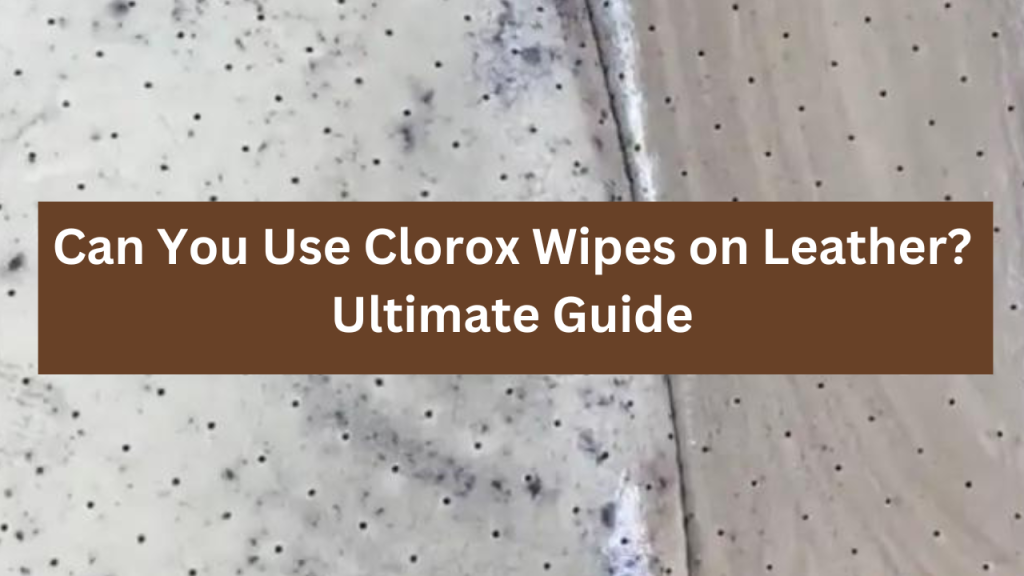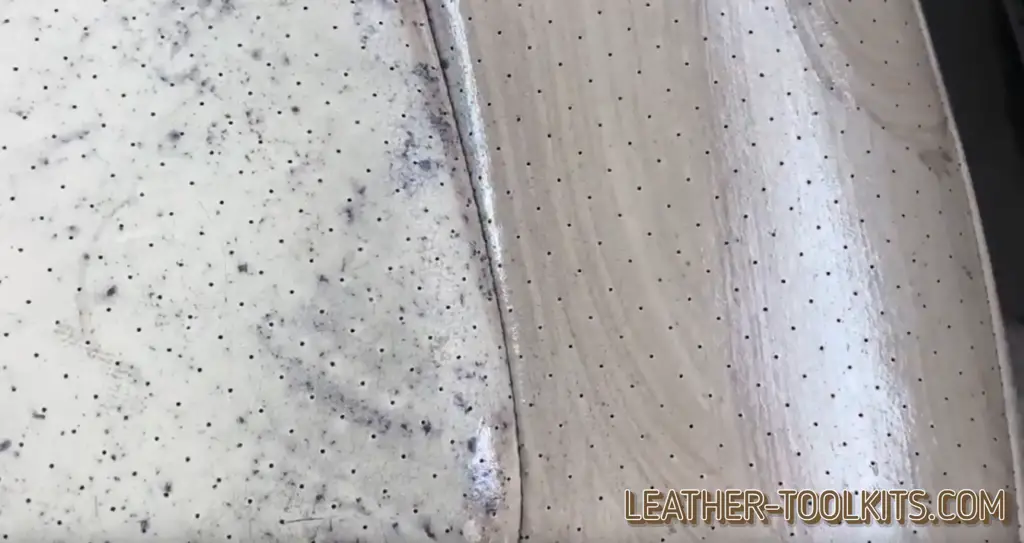
Leather Insights: The Complexity of Cleaning
Leather has been a cherished material for centuries. Crafted from animal hides, leather offers a blend of comfort, durability, and aesthetic appeal that few other materials can match. However, its very nature demands special care, especially when it comes to cleaning. It’s not just about keeping leather items looking good; it’s about preserving their integrity and ensuring they last for years.

Clorox Wipes and Leather Compatibility
At first glance, the idea of using Clorox wipes on leather might seem sound. After all, these wipes are designed to clean and disinfect. However, there’s a vast difference between cleaning countertops and leather. Clorox wipes contain ingredients designed for hard surfaces, not the delicate and porous surface of leather.
Damage to Genuine Leather
Genuine leather is naturally porous. It’s treated with oils, waxes, and dyes, giving it its unique finish. However, this treatment can be stripped away by aggressive cleaning agents. Ingredients in Clorox wipes, especially bleach, can have a disastrous effect. Genuine leather may fade, become discolored, or even begin to peel and crack.
The Role of Alcohol in Cleaning Agents
Isopropyl alcohol is a powerful disinfectant. While great for hard surfaces, its impact on leather is detrimental. When applied to leather, isopropyl alcohol can dehydrate the material, stripping away essential oils that keep leather soft and flexible. This can lead to dryness, cracking, and long-term damage.
Synthetic Leather Consideration
In the world of leather, not all materials are created equal. Synthetic leather, often dubbed PU or faux leather, differs considerably from its genuine counterpart. Produced using plastic materials, synthetic leather doesn’t have the same porous nature. While Clorox wipes might not instantly ruin synthetic leather, they can degrade the protective coatings and give the material a dull appearance over time.
Deciphering the Chemicals in Clorox Wipes
Clorox wipes don’t just contain isopropyl alcohol. Another ingredient, benzalkonium chloride, poses risks. It’s an antimicrobial agent effective against bacteria and viruses. On leather, however, it can lead to discoloration and degrade the leather’s natural protective barrier.
The Silver Lining: Benefits of Clorox Wipes on Leather
For those with synthetic leather items, there’s a silver lining. Clorox wipes, when used judiciously, can offer a quick cleaning solution. They can tackle minor stains, lint, and odors, and their antimicrobial properties can kill off bacteria and other pathogens. It’s about knowing when and where to use them.
The Cons: Chemicals, Odor, and Aesthetics
Beyond potential damage, there’s the matter of the unpleasant chemical smell. Clorox wipes can leave behind a residue that’s not only harmful but also emits an odor that contrasts with the rich, natural scent of leather.
Leather Maintenance: Beyond Cleaning
Leather care goes beyond mere cleaning. Conditioning, for instance, replenishes the natural oils lost during cleaning, ensuring the leather remains soft and supple. Regular conditioning can counteract some of the harmful effects of cleaning, but prevention is always better than cure.
Here are alternatives for more effective leather cleaning.
Alternative Disinfecting Options
Given the risks associated with Clorox wipes, it’s wise to consider alternatives. A vinegar-water mix can serve as a gentle cleaner for leather items. Moreover, some specialized leather cleaners on the market offer deep cleaning without the associated risks of household disinfectants.
Leather in the Age of Disinfection
In an era where disinfection has become paramount, the challenge is balancing cleanliness with care, especially for valued items like leather goods. It’s a testament to the importance of understanding materials and the products we use on them.
Summary Table
| Aspect | Genuine Leather | Synthetic Leather |
|---|---|---|
| Compatibility with Clorox Wipes | Not Recommended | Limited Use |
| Risk of Damage | High (Color fade, peeling, cracking) | Moderate |
| Response to Alcohol | Strips natural oils | Degradation over time |
| Alternative Cleaning Methods | Vinegar-water mix, leather conditioners | Vinegar-water mix, mild disinfectants |
| Aesthetics Post-Cleaning | Potential discoloration | Dull appearance |
Frequently Asked Questions (FAQs)
Can I use Clorox wipes to clean stains off my leather sofa?
While Clorox wipes might be effective in removing some stains, they’re not recommended for leather. The chemicals in the wipes can damage the leather’s protective layer, leading to discoloration and dryness.
How can I sanitize my leather handbag without damaging it?
For sanitization without damage, consider using a mild soap solution or a leather cleaner. Make sure to spot-test any solution in a discreet area first. Also, some newer products on the market are specifically designed to sanitize leather without damage.
What’s the difference between genuine leather and synthetic leather in terms of cleaning?
Genuine leather is natural and porous, making it more sensitive to harsh chemicals. It can absorb moisture, oils, and unfortunately, harmful substances. Synthetic leather is man-made, typically from plastic materials, and can sometimes handle stronger cleaning agents. However, over time, these agents can degrade synthetic leather’s protective layer.
My car seats are made of faux leather (PU leather). Can I use Clorox wipes on them?
While PU leather is more resistant to some chemicals than genuine leather, frequent use of Clorox wipes can degrade the material over time. It’s best to use mild disinfectants or specialized cleaners designed for faux leather.
Why is alcohol content a concern when cleaning leather?
The alcohol content in many disinfectants can strip leather of its natural oils, leading to dryness, cracks, and premature aging. Leather relies on these oils to remain supple and durable.
Are there any natural cleaning solutions I can use on leather?
Yes! A mixture of equal parts water and vinegar can be used as a gentle cleaner. However, always spot-test before applying any solution widely. After cleaning, consider conditioning the leather to replenish its natural oils.
Can I use Lysol wipes as an alternative to Clorox wipes for leather cleaning?
Like Clorox wipes, Lysol wipes contain chemicals that might be harmful to leather. It’s always best to opt for products specifically designed for leather care.










